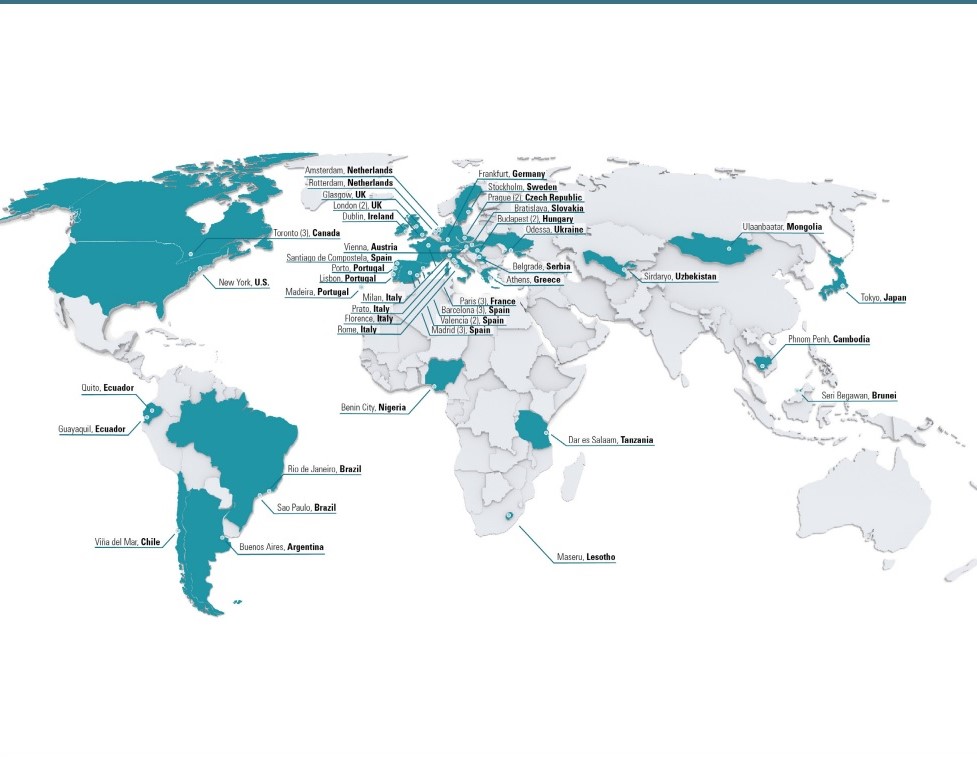NEW DELHI: The Chinese police is operating at least 54 local police stations across five continents and 38 countries, including Canada, Ireland, Netherlands, Czech Republic, Portugal, Italy, Hungary, France, United Kingdom, Greece, Spain, Slovakia, Germany, Sweden, Austria, Ukraine, Serbia, United States, Brazil, Argentina, Chile, Ecuador, Uzbekistan, Mongolia, Brunei, Japan, Nigeria, Lesotho, Cambodia and Tanzania.
The main function of these police stations is to approach Chinese nationals who have been accused of being involved in a crime, and have fled to these countries, and to “persuade” them to come back to China and face the law. This whole set up is a part of the “involuntary return” program that is run in coordination between multiple Chinese agencies, in which Chinese expatriates are compelled to go back to China. According to experts who are studying this phenomenon, around 2.5 lakh Chinese nationals have been forced to return to China under this program.
The Chinese authorities, as per an investigative report by “Safeguard Defenders”, a human rights body registered in Spain, call these police stations “overseas police service stations” which it is opening to take care of the growing administrative needs of Chinese residents abroad, for example, in renewing Chinese driver’s licences remotely and other tasks traditionally considered of a consular nature. However, in reality, they are serving as an extension of the Chinese police to locate and force alleged fugitives to go back to China.
Among the measures used by the Chinese authorities to compel those “wanted by law” to come back to China is to detain the family members, stop government intervention like health care, subsidy, and education to their relatives, and in many cases, punish the whole local community to compel the individual to come back.
The Chinese authorities are also denying suspects’ children the right to education, as well as other actions against relatives and family members in a full-on “guilt by association” campaign. Their spouses, parents, and children are denied subsidies such as severe illness insurance and medical insurance subsidies, their immediate family is blocked in principle from joining the Party and the military. The family members are barred from taking the examinations for becoming public servants or employees of state-owned companies, and real estate purchased with their “illicit” money is vacated and auctioned. Any personnel settled in the property are forcibly driven out.
Chinese officials also restrict the bank accounts of their immediate family members and friends. According to the findings, this operation, which has been going on for years, bypasses official police and judicial cooperation and violates the international rule of law, and also violates the territorial integrity of third countries, as a parallel Chinese policing mechanism is being set up. Once the “target” is identified, officials at the overseas police station get into action and his or her family members in China are intimidated, harassed, detained, and imprisoned to persuade their absconding family members to return “voluntarily”. The target is often directly approached through online or offline means by undercover agents and/or proxies abroad and apprised about the condition the family members are in.
According to experts, by using such clandestine operations, China has managed to avoid the growing scrutiny of its human rights record and the ensuing difficulties that it faces in obtaining the return of “fugitives” through legal proceedings such as formal extradition requests.
These police stations have left Chinese residents abroad fully exposed to extra-legal targeting by the Chinese police, with little or no protection theoretically ensured under both national and international law. On 4 October, the issue of China operating police stations inside Canada was discussed by members of the House of Commons of Canada, which is the Lower House of the Parliament of Canada. During this, Weldon App, Director General, of Global Affairs Canada, which is the department of the Government of Canada that manages Canada’s diplomatic and consular relations, stated that the existence of such police stations was illegal.
China operating with impunity police stations across the globe
- Advertisement -

